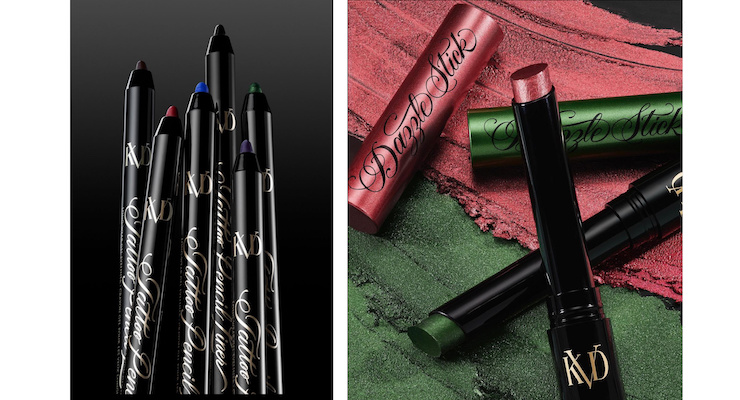10.27.22
There's a growing demand for vegan cosmetic brands, and forecasters say it will continue to rise.
The market will be worth an estimated $28.5 billion by 2031, growing at a CAGR of 5.9%.according to a report by Research and Markets. The market was valued at $16.6 billion in 2021.
KVD Beauty is one brand addressing this need. Its vegan Tattoo Pencil Liners and new Dazzle Stick shades are shown above. Founder Kat Von D cut ties with the brand, and Kendo took over in 2020.
Vegan cosmetics are composed of chemical compounds produced from natural or synthetic sources that do not contain any animal-derived ingredients. Animal-derived substances, common in cosmetoc products, include, honey, beeswax, lanolin, collagen, albumen, carmine, cholesterol, gelatin, and many others. Vegan cosmetics are also devoid of animal testing and are cruelty-free.
Vegan cosmetics are used to cleanse or protect the body or hair and are meant for personal care, skincare, face care, and hair care. Vegan cosmetics are used to improve or modify one's appearance (makeup) by hiding imperfections, accentuating natural features (such as brows and eyelashes), adding radiance to a person's face, or completely redefining the look.
There are formulation challenges for vegan brands. Emulsifiers play a major role in the manufacturing of cosmetics, and vegan emulsifiers are typically costly and take more time to extract from vegan sources, which can slow production, according to the report. It states, "The slow emulsion speed and high price force vegan cosmetics manufacturers to increase the initial price points, however, clear labeling of vegan products provides a clear message to consumers, which encourages sales."
Key players operating in the global vegan cosmetics market are featured in the report—and they include: Amway Corporation, Estee Lauder Companies Inc., Groupe Rocher, L'Occitane Group, L'Oreal S.A., LVMH Group, MuLondon, Pacifica Beauty, Unilever, and Weleda.













